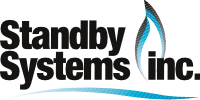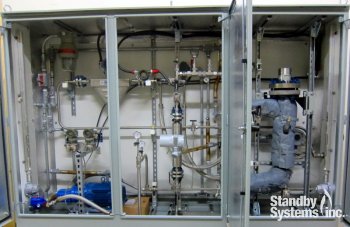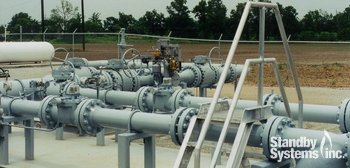Hydrocarbon Measurement & Analysis
Volume, Viscosity, Relative Density, and Specific Gravity

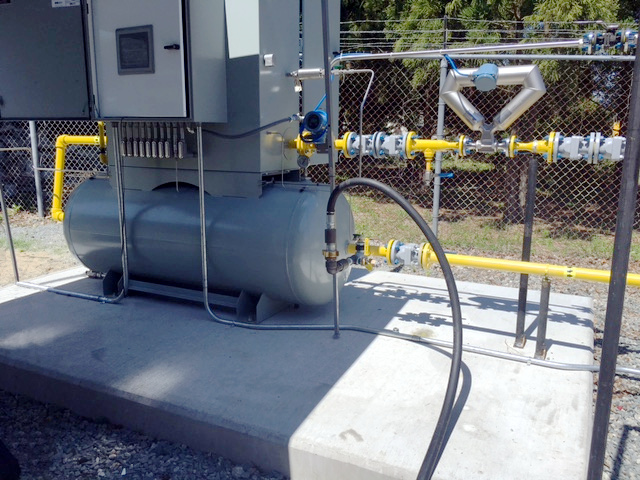
Standby supplies components and complete assemblies for measurement and analysis of liquids and gases for both process and custody-transfer uses. Applications include:
- Gas density, calorific value & flowing volume
- Gas chromatography
- Liquid density, viscosity & volume (static & flowing)
- Liquid sampling systems
- Natural gas metering & pressure control stations
Assemblies typically include pressure and temperature measurement along with support for our customer's SCADA or other data / control system requirements.
iHD Liquid Density & iHDV Density+Viscosity Measurement Solutions
iHD & iHDV systems are designed to meet specific customer requirements. Units are widely deployed for crude oil and refined products pipeline control, custody transfer and refinery operations. Typical installations utilize closed-loop measurement where sampled product is returned to a flowing pipeline or other process. Fast response enhances control of pipeline and other process operations.
Liquid density measurement utilizes vibrating-element technology for single-phase liquids and slurries, providing continuous, highly accurate, repeatable and instantaneous measurements. Viscosity measurement utilizes torsional-oscillation technology to achieve similar results.
Units can be designed for use in measuring a wide range of fluids including food-grade products.
Packaged systems are available in open-frame configurations or enclosed in environmentally controlled, secure NEMA 4 enclosures suitable for low temperature environments. All iHD systems are engineered and built to deliver unmatched quality, performance and reliability.
iHD Features - Typical Hydrocarbon Service
- Maximum Working Pressure: 1,440 psig (101 kg/cm2)
- Densitometer Accuracy: 0.00015 g/cc Repeatability: +/- 0.0001 g/cc
- Viscometer Accuracy: 1% or ±1 digit Repeatability:0.3% or ±1 digit
- Densitometer Repeatability: +/- 0.0001 g/cc
- Stainless Steel Valves & Piping per ASME B31.4
- Actuated Inlet & Outlet Valves
- Meets 49 CFR Part 195 requirements
- Explosion Proof (Class1, Div. 1) Wiring - standard
- Fluid Leak and Flow Detection
- Built-in Sump to capture leakage during maintenance
- Available for Low Temperature Service to -58ºF (-50ºC)
Natural Gas Metering & Pressure Control
Standby designs and builds custody-transfer solutions for natural gas - from high pressure city-gate interconnects between natural gas transmission pipelines and distribution utilities - to final gas connections at consumer sites.
Beginning with local governing standards and your specific operating requirements, we can help ensure accurate, safe and reliable energy delivery.
Gas Density & Calorific Measurement
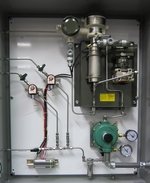
Packaged gas density analyzer for
multi-stream natural gas flows available in all-weather enclosure.
Gas density analyzers are commonly used in LPG-air and other fuel-gas blending systems and in general process environments for ensuring product quality. Relative density or specific gravity (SG) is often stated with reference to air (= 1.0), calculated as follows:

Using the highest-quality components, Standby delivers custom density-measurement solutions for utility, petrochemical and industrial applications including hazardous-area and severe weather ratings.
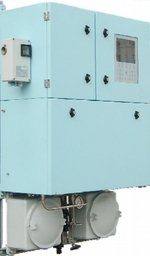
Wobbe Index Meter combines
calorimeter and density measurement.
Calorimeters measure the heating value of a fuel gas (e.g., BTU per cubic foot) via micro combustion of a precise volume of fuel with air. Combined, the heating value and specific gravity of a fuel gas yield the Wobbe Index for the gas, calculated as follows:

Wobbe Index is a primary measure of interchangeability between fuel gases and may be specified as an element of natural gas quality by gas transmission and distribution utilities. A Wobbe value allows comparison of the energy output of combustion between fuel gases with different compositions. Fuel-gases with similar Wobbe Indices will generally perform equally well in a given combustion process.
Technical Information and Downloads
Industry Links
Contact
Standby Systems, Inc.
1313 Plymouth Avenue North
Minneapolis, MN 55411-4065 USA
Phone 612.721.4473
Fax 612.724.8434
Email info@standby.com
Copyright Standby Systems, Inc. 2016
